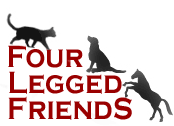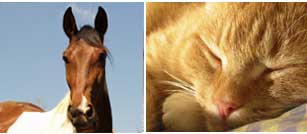


![]() Home
Home
![]() Dogs
Dogs
![]() Cats
Cats
![]() Horses
Horses
![]() -
Horse breeds
-
Horse breeds
![]() -
- The Arabian
-
- The Arabian
![]() -
- The Falabella
-
- The Falabella
![]() -
- The Morgan
-
- The Morgan
![]() -
Horse riding lessons
-
Horse riding lessons
![]() -
Respect
-
Respect
![]() -
Horse health
-
Horse health
![]() -
Horse rescue
-
Horse rescue
![]() -
- Horse rescue UK
-
- Horse rescue UK
![]() -
- Arabian rescue
-
- Arabian rescue
![]() -
Letting Go
-
Letting Go
![]() Animal
Rescue
Animal
Rescue
![]() About us
About us
![]() Site Map
Site Map
![]() uno card rules
uno card rules
Horse Riding - Show Some Respect!
While a good horseperson has no fear of horses and seems quietly confident both on the ground and in the saddle you can be sure that that person is observing safe handling techniques at all times.
Now that I am taking my five year old daughter for riding lessons, I find myself choosing a riding stable which weaves safe handling and comportment on the ground principles into every lesson.
I have a fear of the horse I am riding getting too close to the horse in front. I think that is a healthy fear really but in one riding school I attended the horses were so used to their daily business that one could lay its nose on the butt of the one in front in a canter with no reaction whatsoever.
In the same stables, kids as young as five were encouraged to give theirs mounts a scrap of hay, water and lead them to a hose to water down their legs after a lesson. All wonderful stuff, but what was missing was teaching any respect for the powerful back legs of any equine - small pony or leggy Hackney - and there was a line of ten assorted shapes all tethered side by side in that barn.
As I watched I saw several occasions where a child ran the length of the barn, once while absently banging a plastic bucket. The kids paid no heed to how close they were to the lethal back end of the horses and the instructor paid this no attention whatsoever.
In one way, I loved the confidence with these creatures that the lessons inspired in my young daughter, but in a far more fundamental way, I realised that she was not being taught the most basic lesson of all - respect.
Not every horse she is likely to meet in her lifetime is going to be so docile. As I watched a young boy shouting to his friends and banging his riding hat off the wall behind these catatonic creatures I knew that before my daughter learned the intricacies of riding, she had to learn respect for the 1,000 pounds of flesh, muscle and bone that was carrying her. She had to learn that sensitivity and caution on the ground were as important as a good seat and soft hands.
From the other side of the coin, your instructor should also have respect for your physical ability and experience level. In the riding school mentioned above I watched eight novices being put through their paces. All but one of them was under 15 with Ellie at 67, the eldest. The youngest rider was just short of five years old.
One of the young riders was desperately unhappy. It seemed that just about the last place he wanted to be at that moment was atop Sugar, the bay horse he was riding. You can't really blame him as I later found out he's taken a tumble off the horse at a trot in his previous lesson and was now dreadfully afraid.
Though the school knew that the 67 year old grandmother had no horse riding experience at all, they also had her trotting at her first lesson. Unfortunately no instruction was given her or the other riders to prepare them to trot. Without any training on posting the trot whatsover, the older rider bumped about on top of the saddle, her fear at falling off making her tense up even more.
After the lesson I spoke the older woman. She was bitterly disappointed at the experience and in considerable pain. The jarring and jolting had taken its toll on her back and at that moment she thought she would never get on a horse again.
Fortunately, after a month or two, Ellie's back pain eased and showing great spirit she decided she'd like to find another riding school, one which would allow her to learn at her own pace. At 67, Ellie knows she won't be bringing any trophies home but simply has a dream of hiking out in the countryside.
I was happy to recommend a smaller institution where the instructor takes smaller groups and gives a great deal of individual attention.
So respect for the horses is essential but respect from the instructors for those who are learning to ride is important too. Think about that when considering a riding school for yourself or your child.
K9 TenerifeK9 is a local dog shelter in Tenerife. Housing more than sixty dogs at a time K9 work hard to encourage community involvement with a kid's dog walking club and regular community events. |
Wild MustangsThe Black Hills Wild Mustang Sanctuary is a non-profit charity
dedicated to provide freedom for unadoptable and unwanted mustangs.
the group also fund research into wild horse management. |